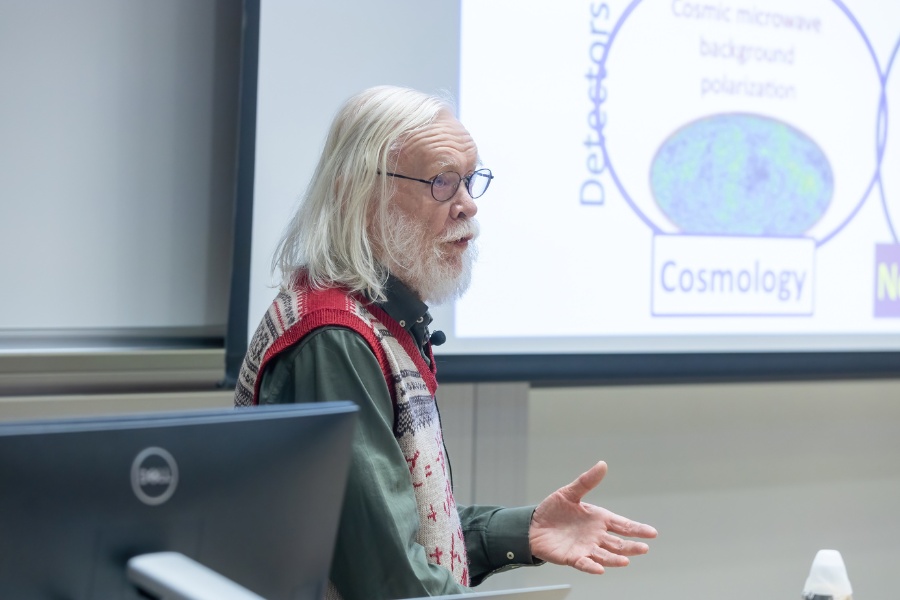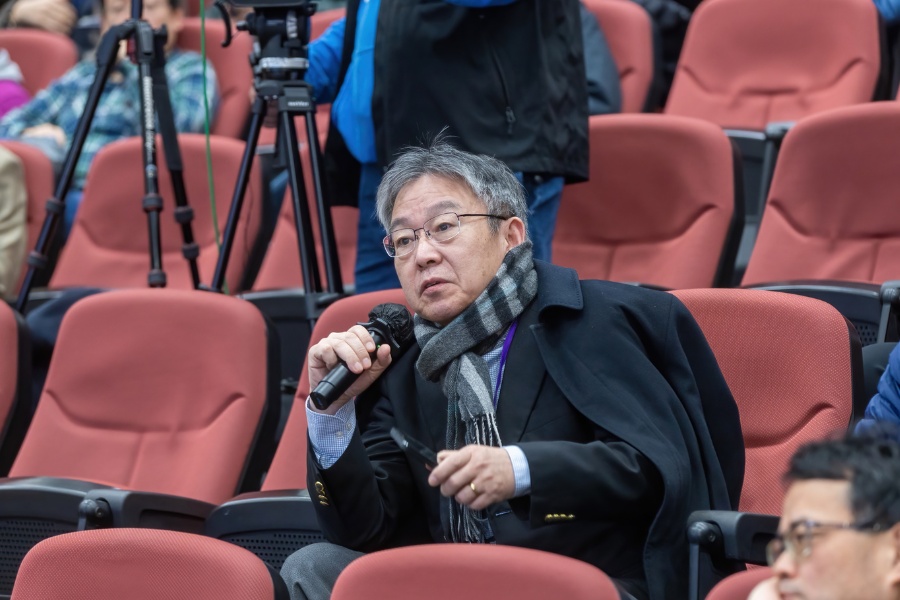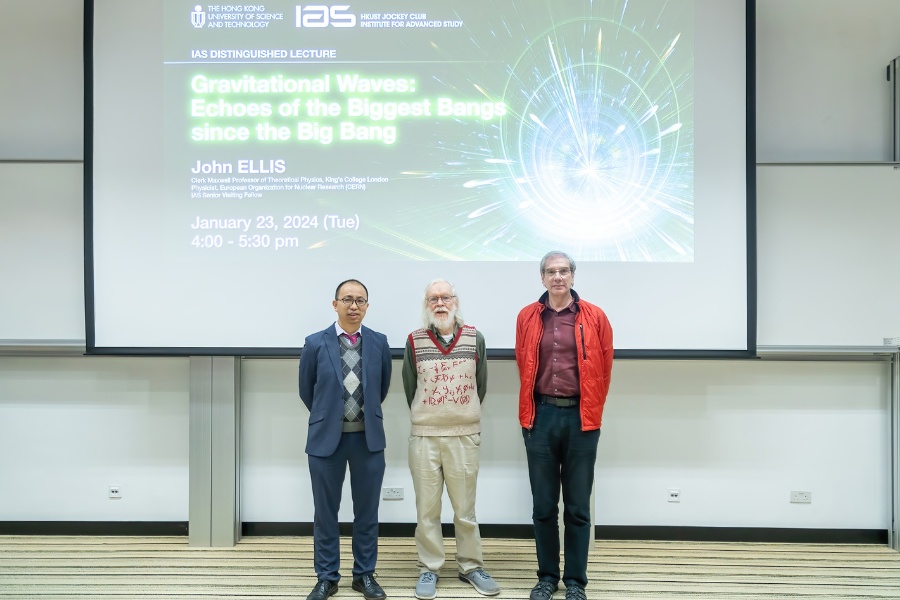Gravitational Waves: Echoes of the Biggest Bangs since the Big Bang
Abstract
The direct discovery by the LIGO and Virgo experiments of gravitational waves emitted by mergers of stellar-mass black holes has opened a new window on the Universe. Pulsar Timing Array (PTA) Collaborations have recently reported the discovery of GWs in the nanoHz frequency range that might be due to supermassive black hole binary systems or cosmological sources involving physics beyond the Standard Model. The speaker will discuss how to distinguish between these mechanisms, perhaps by using atom interferometers to observe directly the mergers of black holes much heavier than those measured so far.
About the speaker
Prof. John ELLIS is a British theoretical physicist who currently holds the Clerk Maxwell Professorship of Theoretical Physics at King's College in London. After obtaining a PhD from The University of Cambridge and holding post-doctoral positions at SLAC National Accelerator Laboratory, USA and California Institute of Technology (Caltech), from 1973 to 2011 he worked at CERN (Geneva), where he was Theory Division Leader for six years.
Prof. Ellis' research interests focus on the phenomenological aspects of elementary particle physics and its connections with astrophysics, cosmology and gravity. Much of his work relates directly to experiment: interpreting results of searches for new particles and exploring the physics that could be done with future accelerators. A proposal he made in 1976 led to the discovery of the gluon in 1979, and he was one of the first to study how the Higgs boson could be produced and discovered. He has authored over a thousand scientific papers, with over eighty thousand citations in total. He has been active recently in efforts to understand the Higgs particle discovered at CERN, comparing the properties of this particle with the predictions of the Standard Model, and using effective field theory to understand the implications of the discovery for extensions of the Standard Model such as supersymmetry and other possible new physics such as dark matter. He is also now studying possible future particle accelerators and experiments to measure gravitational waves.
Prof. Ellis was elected a Fellow of the Royal Society of London in 1985. He was appointed a Commander of the Order of the British Empire (CBE) in 2012 for his services to science and technology. In 2015, he was elected a Foreign Fellow of the Indian National Science Academy and a Foreign Member of the Estonian Academy of Sciences, and he has been awarded several honorary doctorates.
Prof. Ellis is an eloquent speaker, frequently invited to give public and educational lectures on particle physics and related topics. He is also well known for his relentless efforts to involve non-European nations and institutions in CERN scientific and technological activities.
For Attendees' Attention
-
Seating is on a first come, first served basis.
-
This lecture is a part of IAS Program on High Energy Physics (2024).











